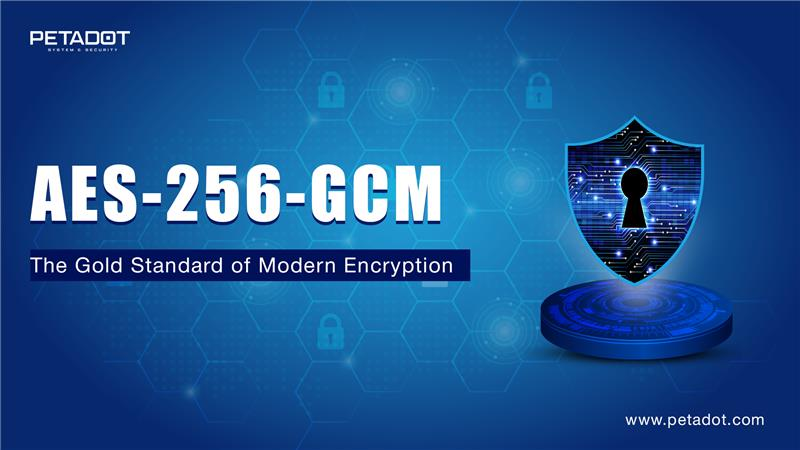In the digital age data security has become the top concern for people as well as businesses and government. If we’re transferring funds online, sending private emails, or keeping sensitive data on the internet, our main issue is the question: is my information truly secured?
This is the point where AES-256-GCM is a must — a contemporary encryption standard that is widely praised for its speed, strength and dependability.
What is AES?
AES is an acronym as Advanced Encryption Standard. It was first introduced on the 1st of January, 2001 by U.S. National Institute of Standards and Technology (NIST) to replace the old DES (Data Security Standard).
AES is an algorithm for encryption using symmetric keys that means that using the same encryption key can be employed to decrypt and encrypt the data.
Why AES-256?
AES allows different lengths of keys including 128, the 192 and 256 bits. The bigger the key size is, the more secure the encryption.
- AES-128: Secure and fast for all applications.
- AES-192: More robust, but less widely utilized.
- AES-256 is the strongest and safest version with 2256 possible keys, which makes brute force attacks nearly impossible to achieve with modern technology.
This is the reason why banks, governments and companies often choose AES-256 for data that is mission-critical.
What is GCM Mode?
AES as a whole is an encryption block that specifies the way blocks of data are transformed by an encryption key. However, to secure massive amounts of data in a secure manner an operation method is needed.
GCM (Galois/Counter Mode) is one of these modes that has two advantages that are significant:
- Security: It ensures that the data is not accessible to any unauthorised parties.
- Authentication: It performs an integrity test, meaning it can tell the presence of data that has been altered in the transmission.
The combination of encryption and authentication is the reason AES-256-GCM is considered to be the most advanced.
Key Benefits of AES-256-GCM
- Unmatched Security
- With a 256-bit length for the key it’s resistant to brute-force attacks even when supercomputers are involved.
- With a 256-bit length for the key it’s resistant to brute-force attacks even when supercomputers are involved.
- High Performance
- GCM mode is designed to optimize parallel processing, which makes it more efficient than other encryption methods.
- GCM mode is designed to optimize parallel processing, which makes it more efficient than other encryption methods.
- Data Integrity
- Inbuilt authentication tags guarantee that the data isn’t altered and protects against man-in-the middle attacks.
- Inbuilt authentication tags guarantee that the data isn’t altered and protects against man-in-the middle attacks.
- Widely Trusted
- Utilized by companies like those of the U.S. government, financial institutions as well as VPNs, messaging applications and cloud providers.
Real-World Applications
- Secure Communications VPNs HTTPS (TLS 1.2+) and encrypted messaging applications rely on AES-256-GCM.
- Financial Transactions Payment gateways and cryptocurrency wallets utilize it to secure sensitive data.
- Cloud Security: Top cloud providers such as AWS, Azure, and Google Cloud implement AES-256-GCM for safeguarding databases and stored files.
- Use for Government and Military classified data and defense communications usually need AES-256-GCM because of its security.
Challenges and Considerations
Although AES-256-GCM is incredibly strong but its implementation has to be executed properly. Common errors include:
- Insecure Key Management Key Management is weak: If keys to encryption are not kept safely, the system can become vulnerable.
- Use of incorrect nonces: GCM requires unique nonces for each encryption. Reusing nonces can be a security risk.
- Performance Trade-offs: Though it is quick, AES-256 will require more computing energy than the AES-128, and this could be a problem for devices with limited resources.
Conclusion
AES-256 is not just a different encryption algorithm – it’s the gold standard of modern-day security of data. By combining confidentiality integrity, speed, and confidentiality it is the best protection available in the current cyber-attack landscape.
From securing private messages to securing government secrets AES-256-GCM is among the top foundations of security in the digital age.
If you are concerned about protecting sensitive information, AES-256-GCM isn’t just an option it’s a requirement.
Suggested

